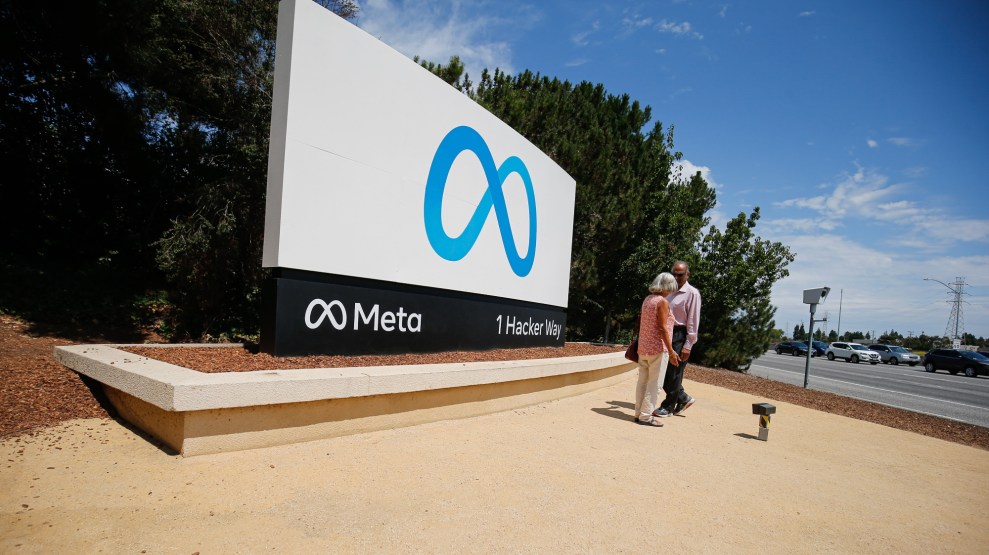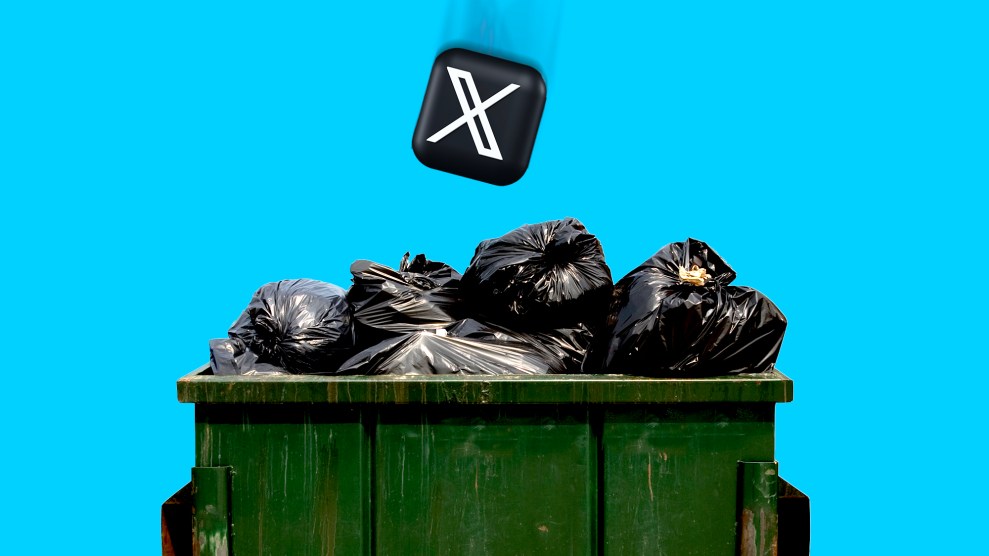
Michael Ho Wai Lee/SOPA Images/Zuma
Get your news from a source that’s not owned and controlled by oligarchs.
Sign up for the free Mother Jones Daily.Instagram and Threads will no longer recommend political content to users, the websites’ parent company, Meta,
announced Friday, in a change that will make it harder for people to see journalism during a presidential election year.
“This announcement expands on years of work on how we approach and treat political content based on what people have told us they wanted,” Meta spokesperson Dani Lever
told the Washington Post. Facebook,
also owned by Meta, was once a major driver of traffic to news sites, but in recent years the company has altered its algorithm to reduce this content on people’s feeds, partly as a response to criticism that it was spreading misinformation and extremism.
On Instagram and the upstart Threads, which launched last summer, people will still be allowed to follow accounts that post about politics and other social issues, according to the head of Instagram, Adam Mosseri. But these apps will not “proactively amplify” these posts, including on Instagram’s Reels and Explore. Mosseri did not detail what counts as “political” content, but a Meta spokesperson
told Yahoo that it means topics related to government, laws, and elections, as well as “social” topics. “These global issues are complex and dynamic, which means this definition will evolve as we continue to engage with the people and communities who use our platforms and external experts to refine our approach.” Meta said it will develop tools to let users opt in to more political content, but those tools have not rolled out yet.
The announcement has alarmed some journalists, celebrities, and content creators, many of whom started using Threads after Elon Musk took over the site formerly known as Twitter. Sari Beth Rosenberg, a podcaster in New York, told the Post she worries that if she mentions the coronavirus pandemic, a topic her platform has focused on, the company may limit who can see her posts. Ena Da, a content creator in Brooklyn, said restricting content about “social issues,” a vague term, could have serious ramifications for her. “Some people’s entire existence and their perspectives are going to be deemed political,” she said, “like me as a Black woman. This is going to silence a lot of marginalized people.”
The changes will likely hurt journalism outfits that are already struggling with the loss of traffic from Facebook. In January, CNBC published an analysis of 1,930 news and media websites that showed how Meta’s decision to “get out of the news business” had “upended many publications.” Mother Jones CEO Monika Bauerlein has previously written about the problem:
At Mother Jones, it used to be that as many as 5 million users came upon one of our stories via Facebook in a month. Now it’s closer to 60,000. And it’s not for lack of interest: 1.5 million people follow Mother Jones on Facebook, more than ever before. It’s just that Meta has decided that news is not good for its business, and constructed its algorithms accordingly…When platforms keep people who follow you from seeing much of your content, which is what “not amplifying” means, it means publishers can’t connect with subscribers or donors (or for that matter earn advertising revenue, which for better or worse is still pretty important for what remains of commercial media.) That’s why America is losing newspapers at the rate of two a week, and why this has been a year of nonstop media layoffs.
As the Post reports, the changes at Instagram and Threads are less likely to hurt right-wing content creators, such as “trad wife” influencers who often post stories about homemaking that don’t seem overtly political but include conservative messages with political implications. “Everything is political if we’re honest with ourselves,” Ashton Pittman, a news editor at the nonprofit Mississippi Free Press, which publishes public-interest reporting, told the Post, adding that he worries how the new algorithm will affect his publication. If tech companies are the ones that get to define what’s political and what’s not, and whether we see that information, where does that leave us?


















